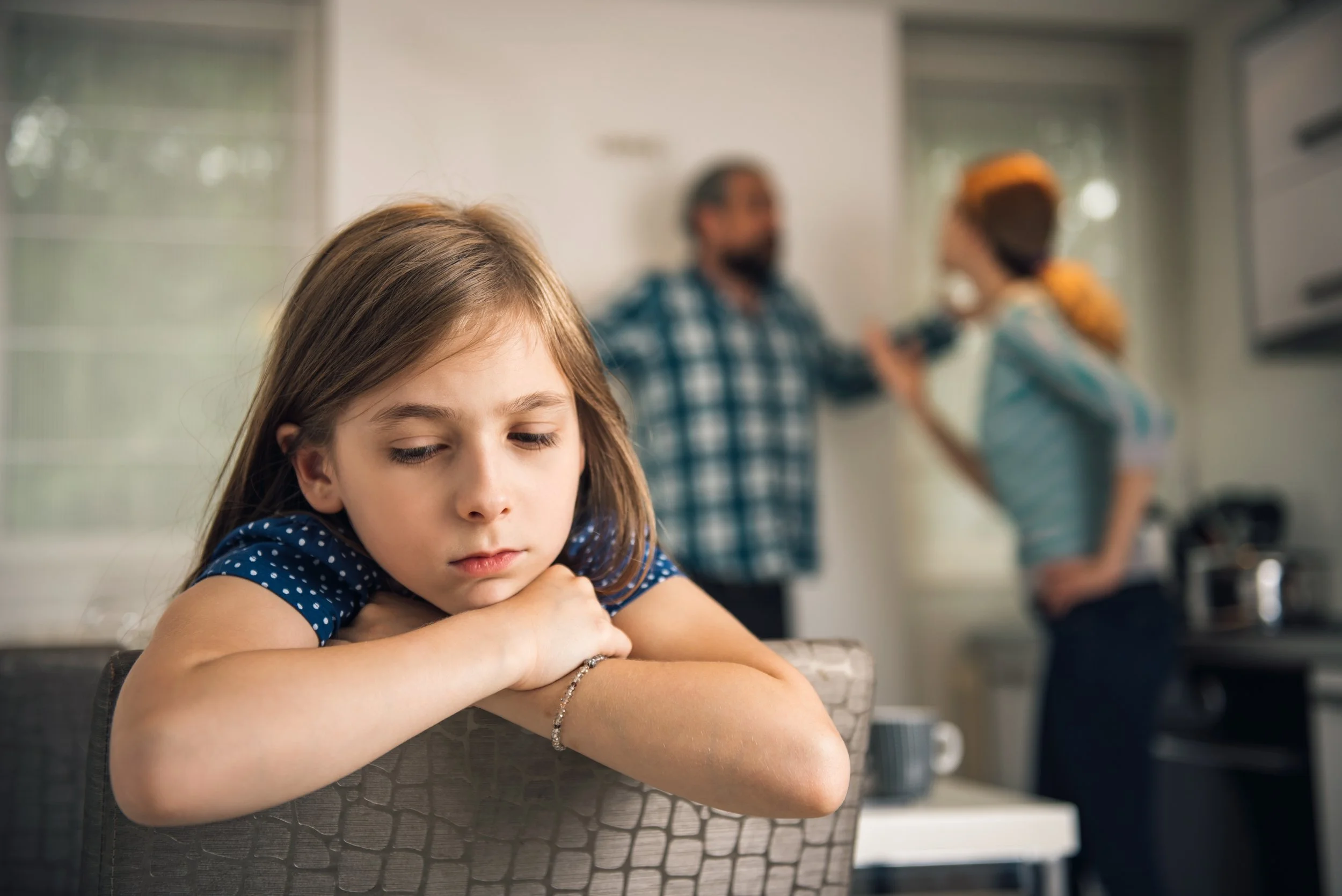
What is Play Therapy?
As parents, we want the very best for our children. When they’re struggling, whether with big feelings, changes at home, or difficult experiences, it can be hard to know how to help. Many parents come to me saying, “They won’t talk about it. I’ve tried asking, but I just can’t get through.” That’s where play therapy is a great option.
As parents, we want the very best for our children. When they’re struggling, whether with big feelings, changes at home, or difficult experiences, it can be hard to know how to help. Many parents come to me saying, “They won’t talk about it. I’ve tried asking, but I just can’t get through.” That’s where play therapy is a great option.
Why Play Instead of Talking?
Adults often process emotions by talking. Children, however, typically don’t have the words or life experience to explain what’s going on inside. Instead, they may “speak” through play. When a child picks up a toy, draws a picture, or acts out a story, they’re often telling us what they’re feeling, even if they can’t put it into words. Play therapy is a specialized form of counseling that uses this natural language of children to help them express themselves, work through challenges, and build skills for coping and resilience.
What You Can Expect as a Parent
It’s normal to wonder, What exactly happens in play therapy? or How will this help my child? Here are some key things to know:
Sessions look like play, but they have purpose. Your child will use toys, games, art, and stories to explore feelings. The therapist is trained to guide this process so the play becomes healing and meaningful.
Progress takes time. Just like with adults, therapy is a process, not a quick fix. You may notice small shifts such as better mood, fewer meltdowns, more confidence, though these may be observed over weeks and months during treatment.
Parent Involvement. Parents play a vital role. Depending on the therapist’s approach, you might meet regularly with the therapist to discuss your child’s progress, learn strategies for home, or even join in parts of sessions.
Confidentiality matters. Children need to feel safe in therapy. That means your therapist may not share every detail of what happens in the playroom, but they will update you on themes, progress, and ways you can support your child outside of sessions.
It’s about building tools for life. The goal isn’t to make problems “disappear,” but to help your child develop healthier ways to understand and manage their emotions, relationships, and experiences.
How Parents Can Support the Process
Be patient—healing happens in small steps.
Stay consistent with therapy appointments.
Show interest without pressuring your child to “report back” after sessions.
Practice new coping skills at home when your therapist suggests them.
Recommended Reading for Parents
If you’d like to learn more about play therapy and supporting your child’s emotional growth, here are some excellent resources:
“Play Therapy: The Art of the Relationship” by Garry L. Landreth – A classic guide for understanding the philosophy behind play therapy.
“Parenting with Play Therapy: A Practical Guide to Nurturing Emotional Well-Being” by Nancy Boyd Webb – Accessible, parent-friendly insights.
“Child-Centered Play Therapy: A Practical Guide to Developing Therapeutic Relationships with Children” by Rise VanFleet – Helpful for parents curious about the techniques therapists use.
Short Videos about Play Therapy
If you’re a visual learner, like me, here are some short videos on YouTube that do a great job of outlining play therapy and its benefits:
Introduction to Play Therapy — therapist Joey Harmon gives an overview of child-centered play therapy
Play Therapy Works! — a succinct video by the Association for Play Therapy introducing what play therapy is and why credentialed therapists matter
Play is the Child’s Language: Play Therapy — Joanne Wicks describes how play is children’s emotional expression in a brief talk
Introducing Andrew — a short clip emphasizing that “play is a child’s first language” and how children express inner worlds through play
Final Thoughts
Remember: seeking play therapy doesn’t mean you’ve failed as a parent. It means you’re giving your child another pathway to healing and growth, and that’s a powerful gift.
Disclaimer: The content shared on this blog reflects my personal and professional reflections. It is intended for general informational and educational purposes only. It is not a substitute for therapy, counseling, or professional mental health treatment. If you are experiencing distress or seeking support, I encourage you to reach out to a qualified mental health professional in your area.
Why You Shouldn’t Speak Negatively to Your Child About Your Ex-Spouse
Divorce or separation is one of the most difficult transitions a family can experience. Emotions run high, pain is real, and sometimes resentment lingers far beyond the separation itself. In these moments, it may feel natural to vent frustrations about your ex-spouse. But when those negative comments are spoken in front of—or directly to—your children, the consequences can be long-lasting and harmful.
Divorce or separation is one of the most difficult transitions a family can experience. Emotions run high, pain is real, and sometimes resentment lingers far beyond the separation itself. In these moments, it may feel natural to vent frustrations about your ex-spouse. But when those negative comments are spoken in front of—or directly to—your children, the consequences can be long-lasting and harmful.
As parents, we want to protect our children. One of the most powerful ways we can do that is by shielding them from harmful narratives about the other parent.
The Impact of Negative Talk on Children
Research consistently shows that children caught between parental conflict often experience increased anxiety, depression, and feelings of divided loyalty. When a child hears one parent criticize the other, they may feel they must choose sides—or worse, feel guilty for continuing to love the “talked about” parent (Amato, 2014).
In fact, studies on high-conflict divorces demonstrate that children exposed to negative talk about one parent are at higher risk for:
Emotional distress
Lower self-esteem
Behavioral issues
Strained parent-child relationships (Johnston et al., 2016)
When we speak negatively about our ex, children may internalize the conflict as part of their own identity: “If Mom says bad things about Dad, and I’m half Dad, does that mean part of me is bad too?”
A Real-Life Scenario
Consider this example:
Eight-year-old Jacob spends weekends with his father. One Sunday evening, when his dad drops him off, his mom asks if Jacob had fun. Jacob excitedly talks about the movie they saw. His mom sighs and says, “Well, I’m glad you had fun, but your father really should be more responsible with money. He never thinks about the future.”
Jacob doesn’t respond, but later that night he feels sad and conflicted. He wonders if it’s wrong to enjoy time with his dad. He feels guilty for loving both parents. Over time, these comments pile up, leaving Jacob confused, anxious, and unsure of how to navigate his relationships.
What to Say Instead
It’s normal to feel upset with your ex, but your child doesn’t need to carry those feelings. Instead of speaking negatively, shift to supportive or neutral phrases. This helps your child feel secure while still acknowledging their reality.
Instead of: “Your mom is always late—she doesn’t care about your time.”
Try: “Sometimes schedules can get tricky, but I’m glad you’re here now.”Instead of: “Your dad never follows through.”
Try: “I know it can feel frustrating when plans change. How are you feeling about it?”Instead of: “She’s selfish and doesn’t think about anyone but herself.”
Try: “We see things differently, but I know she loves you.”Instead of: “Your father ruined everything.”
Try: “The marriage didn’t work out, but we both love you very much.”
These shifts communicate stability and love, helping your child feel safe in both relationships.
Why This Matters
Children do best when they have strong, positive relationships with both parents—even when those parents are no longer together (Kelly & Emery, 2003). By avoiding negative talk, you not only protect your child’s emotional well-being but also model maturity, respect, and resilience.
Remember: your child’s relationship with your ex is separate from your own. Supporting that relationship does not minimize your pain—it magnifies your child’s chance to thrive.
Final Thoughts
Parenting after divorce isn’t easy, but your words hold incredible power. Choosing to speak with kindness, neutrality, or silence about your ex is a profound gift to your child. You are showing them that love can exist beyond conflict, and that they never have to choose between their parents.
If you find yourself struggling with this, therapy can provide a safe space to process your feelings and learn new tools for communication. At Summit Family Therapy, we walk alongside families in transition, helping both parents and children find pathways toward healing and connection.
References
Amato, P. R. (2014). The consequences of divorce for adults and children: An update. Journal of Marriage and Family, 76(3), 460–480.
Johnston, J. R., Roseby, V., & Kuehnle, K. (2016). In the name of the child: A developmental approach to understanding and helping children of conflicted and violent divorce. Springer Publishing Company.
Kelly, J. B., & Emery, R. E. (2003). Children’s adjustment following divorce: Risk and resilience perspectives. Family Relations, 52(4), 352–362.
Back-to-School Stress: How to Support Yourself and Your Family
Back-to-school season is often a mix of excitement and anxiety—for both students and parents. While a new year brings opportunities for learning, growth, and connection, it can also trigger stress, overwhelm, and worry. Understanding what drives this stress and how to manage it can make the transition smoother for everyone.
Back-to-school season is often a mix of excitement and anxiety—for both students and parents. While a new year brings opportunities for learning, growth, and connection, it can also trigger stress, overwhelm, and worry. Understanding what drives this stress and how to manage it can make the transition smoother for everyone.
Why Back-to-School Can Be Stressful
Several factors contribute to heightened stress during this time:
Change in routine: Shifting from relaxed summer schedules to early mornings, homework, and extracurricular activities can disrupt both sleep and daily rhythms.
Academic pressure: Expectations around grades, performance, and achievement can weigh heavily on students.
Social dynamics: Meeting new classmates, navigating friendships, or dealing with bullying can create anxiety.
Parental stress: Parents often feel pressure to manage logistics, support children’s needs, and meet expectations themselves.
Even adults who aren’t in school may feel a sense of “seasonal stress” as routines shift and responsibilities pile up.
Signs of Back-to-School Stress
Stress can show up in many ways, both emotional and physical:
Irritability or mood swings
Difficulty sleeping or oversleeping
Trouble concentrating or completing tasks
Headaches, stomachaches, or other physical complaints
Avoidance of school or related activities
Recognizing these signs early can help prevent stress from escalating into anxiety or burnout.
Strategies to Reduce Back-to-School Stress
1. Establish a Routine
Start preparing a few weeks in advance with consistent wake-up, meal, and bedtime schedules. A predictable routine helps children—and adults—feel more grounded.
2. Practice Mindfulness and Relaxation
Simple breathing exercises, meditation, or grounding techniques can help manage racing thoughts and calm the nervous system. Even five minutes a day can make a difference.
3. Prioritize Sleep and Nutrition
Sleep is critical for emotional regulation and cognitive function. Balanced meals and regular hydration also support resilience during stressful times.
4. Communicate Openly
Encourage children (and yourself) to share feelings and worries. Validating emotions rather than minimizing them helps reduce stress and fosters connection.
5. Set Realistic Expectations
No one is perfect—academic or otherwise. Celebrate effort, curiosity, and growth rather than only focusing on grades or achievements.
6. Seek Support if Needed
If stress feels overwhelming, persistent, or is interfering with daily life, consider talking with a therapist. Therapy provides tools to manage anxiety, strengthen coping skills, and build confidence during transitions.
Final Thoughts
Back-to-school stress is a normal response to change, but it doesn’t have to take over the season. With awareness, preparation, and self-care, families and students can navigate the transition with more calm, connection, and confidence.
At Summit Family Therapy, I work with children, teens, and parents to manage stress, build resilience, and support healthy emotional development. If you or your child are feeling overwhelmed this school year, schedule a session with one of our therapists and take the first step toward a calmer, more confident start.
Reflecting on Dr. James Dobson’s Legacy: Parenting, Child Welfare, and Controversy
Dr. James Dobson, a prominent evangelical leader and founder of Focus on the Family, passed away on August 21, 2025, at the age of 89. Throughout his life, Dobson was a significant figure in American family dynamics, offering guidance to millions of parents while also sparking debates on child-rearing practices.
Dr. James Dobson, a prominent evangelical leader and founder of Focus on the Family, passed away on August 21, 2025, at the age of 89. Throughout his life, Dobson was a significant figure in American family dynamics, offering guidance to millions of parents while also sparking debates on child-rearing practices.
As a psychotherapist and someone who was raised in a household influenced by his teachings, I wanted to sit with this news for a few days before sharing my thoughts.
A Voice in Parenting and Child Welfare
Dobson's influence began with his 1970s book Dare to Discipline, which advocated for structured parenting and the use of corporal punishment. He believed in the importance of parental authority and discipline, emphasizing the need for clear boundaries and consequences for children. His approach resonated with many parents seeking guidance during times of societal change.
Over the years, Dobson authored over 70 books and hosted a nationally syndicated radio program, Family Talk, reaching millions of listeners. His messages often centered on traditional family values, marriage, and child-rearing, providing a framework for many navigating the complexities of modern parenting.
Controversies and Criticisms
While Dobson's work garnered widespread support, it also attracted criticism. Many child development experts and psychologists have since challenged the efficacy and safety of corporal punishment, suggesting that such methods can lead to negative emotional and behavioral outcomes for children. I would also argue that Dobson's endorsement of physical discipline may have contributed to a normalization of practices now recognized as harmful and potentially abusive.
My major concern is that Dobson largely did not update or correct his guidance even after research consistently showed negative effects of corporal punishment and harsh discipline. While science evolved and child development experts emphasized evidence-based approaches, Dobson continued to promote methods that we now know are outdated or harmful. This raises difficult questions about the responsibility of influential figures to adapt messaging in light of new evidence, particularly when it affects vulnerable children. Even the most loving parents may unintentionally cause harm if given flawed expert advice, especially when it is connected to their faith.
Furthermore, I know of many individuals who have shared personal accounts of experiencing emotional distress and trauma linked to the parenting techniques Dobson promoted. These testimonies highlight the complex and sometimes painful impact of his teachings on certain families.
The Hidden Wounds of Purity Culture and 'Breaking a Child's Will'
At Summit Family Therapy, we often support adults untangling from deeply ingrained messages—particularly those shaped by purity culture or the ideal of authoritarian obedience. These cultural legacies frequently intersect in ways that harm identity, autonomy, and emotional safety.
Purity Culture’s Impact on Self and Body
Purity culture—common in conservative religious settings—emphasizes sexual abstinence, modesty, and rigid gender expectations. Girls are sometimes taught that their value lies in their "purity," and anyone who steps outside those defined boundaries may feel immediately less worthy or spiritually inadequate. This initiates cycles of shame, guilt, and mistrust in one's own body and feelings.
For those raised in purity culture, shame may become woven into identity—deepening inner conflict, distorting sexual understanding, and making intimate relationships difficult or even frightening.
“Breaking a Child’s Will” in Religious Parenting
Another common thread is the idea—often rooted in certain evangelical teachings—that children must be molded into submissive adults through rigid, sometimes painful discipline. Popular guides like Dare to Discipline and The Strong-Willed Child encouraged physical correction as a means to "correct" behavior, under the belief it would align children with both family and spiritual values.
Decades of research now show that such practices—while perhaps effective in the short term—often lead to long-lasting trauma, issues with self-esteem, emotional dysregulation, and relational patterns marked by fear rather than trust.
Healing the Disconnect
When purity culture and authoritarian discipline converge, many adults grow up feeling disconnected from their emotions, bodies, and fairly often—as though they were never truly permitted to develop their own moral code. This can look like difficulty setting boundaries, resisting people-pleasing, feeling unseen, or even fearing autonomy.
As a trauma-informed therapist, I believe healing begins with a reclamation of self—through connection, compassion, and therapeutic exploration. It looks like rediscovering your body as safe, your voice as valid, and your boundaries as essential. It means learning to hear and honor what your emotions and physical self are communicating so you can move toward agency, healing, and deeper resilience.
Adults Deconstructing Faith and Reprocessing Childhood Experiences
In recent years, many adults have begun to deconstruct their faith and critically reflect on the religious and cultural messages they received as children. For some, this journey has revealed painful connections between strict, authoritarian parenting models and experiences of emotional or physical harm. Dobson’s teachings, particularly around discipline and obedience, are often cited by individuals as shaping environments where fear, shame, or corporal punishment were normalized.
These adults may struggle with feelings of betrayal, confusion, or anger, recognizing that the very structures meant to instill morality and love sometimes caused harm. Therapy and supportive communities can play a crucial role in processing these experiences, reclaiming autonomy, and separating spiritual beliefs from harmful practices, ultimately helping individuals heal from intergenerational and faith-based trauma.
My Own Experiences
I can still remember sitting in seminars at my faith-based college where the message was clear: virginal purity was the most valuable thing a person—especially a woman—could offer. Those who “fell short” of this expectation were described as tainted, dirty, a wilted flower, or used up. Yet, in reality, less than 5% of Americans wait until marriage to have sex.
When I think back on those teachings now, my heart breaks for every survivor of sexual abuse or assault who was in that room. Hearing spiritual leaders declare that they were dirty or ruined only reinforced the shame and self-blame they already carried. I want to scream and weep for every woman who has come into my office carrying this burden of shame.
A Lasting Impact
James Dobson’s impact on parenting and family life cannot be overstated. He offered guidance, community, and a sense of direction to many parents seeking support. At the same time, it’s clear that some of his methods contributed to emotional harm, leaving lasting effects on children who grew up under strict or fear-based discipline.
As a therapist, I see the importance of reflecting on this legacy honestly. Understanding the past allows us to embrace compassionate, evidence-based approaches to parenting and healing, while honoring the experiences of those who were hurt.
If you are navigating feelings related to childhood experiences, faith, or family trauma, therapy can be a safe place to explore and heal. I invite you to schedule a session with me, Dr. Courtney Stivers, to begin untangling these experiences and reclaiming your sense of safety and self-worth.







